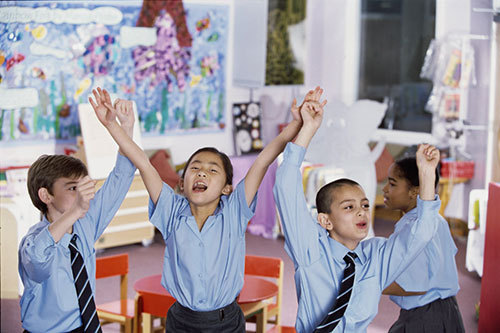I have a policy of not talking about studies I'm engaged in before they are done and available, but I have an observation to make that just won't wait.
I'm working on a review of research on secondary reading programs with colleagues Ariane Baye (University of Liege in Belgium) and Cynthia Lake (Johns Hopkins University). We have found a large number of very high-quality studies evaluating a broad range of programs. Most are large, randomized experiments.
Mostly, our review is really depressing. The great majority of studies have found no effects on learning. In particular, programs that focus on teaching middle and high school students struggling in reading in classes of 12 to 20, emphasizing meta-cognitive strategies, phonics, fluency, and/or training for teachers in what they were already doing, show few impacts on learning. Most of the studies provided daily, extra reading classes to help struggling readers build their skills, while the control group got band or art. They should have stayed in band or art.
Yet all is not dismal. Two approaches did have markedly positive effects. One was tutoring students in groups of one to four, not every day but perhaps twice a week. The other was cooperative learning, where students worked in four-member teams to help each other learn and practice reading skills. How could these approaches be so much more effective than the others?
My answer begins with a consideration of the nature of struggling adolescent readers. They are bored out of their brains. They are likely to see school as demeaning, isolating, and unrewarding. All adolescents live for their friends. They crave mastery and respect. Remedial approaches have to be fantastic to overcome the negative aspects of having to be remediated in the first place.
Tutoring can make a big difference, because groups are small enough for students to make meaningful relationships with adults and with other kids, and instruction can be personalized to meet their unique needs, to give them a real shot at mastery.
Cooperative learning, however, had a larger average effect size than tutoring. Even though cooperative learning did not require smaller class sizes and extra daily instructional periods, it was much more effective than remedial instruction. Cooperative learning gives struggling adolescent readers opportunities to work with their peers, to teach each other, to tease each other, to laugh, to be active rather than passive. To them, it means joy. And joy is a basic skill.
Of course, joy is not enough. Kids must be learning joyfully, not just joyful. Yet in our national education system, so focused on testing and accountability, we have to keep remembering who we are teaching and what they need. More of the same, a little slower and a little louder, won't do it. Adolescents need a reason to believe that things can be better, and that school need not cut them off from their peers. They need opportunities to teach and learn from each other. School must be joyful, or it is nothing at all, for so many adolescents.
This blog is sponsored by the Laura and John Arnold Foundation

